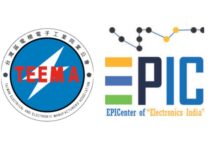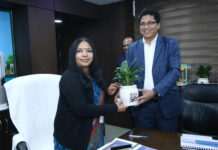Union Minister of State (Independent Charge) Science & Technology, Dr Jitendra Singh said, Government aims to put India ‘among top 5 in terms of quality of research outcome’ by the year 2030.
The Government has taken several steps in this direction and as part of the draft of the STIP 2022. In addition to strengthening and expanding the scope of ongoing R&D programmes, some of the key elements of the draft policy which aim to enhance the quality of research outcome include: Creation of conducive culture of profound research in institutions and industry to propel disruptive discoveries and inventions as well as the translational research; ‘Research and Innovation Excellence Framework (RIEF)’ to set up benchmarking mechanisms for recognizing the outcomes and impact of R&D, with respect to its quality, relevance to meaningful impact on society and national needs; ‘Engaged research’ to support the development of products, processes, and technology that incorporates engagement, testing and feedback from the end-user from an early stage; creation of platforms to attract the best talent into the research ecosystem; developing mentoring programmes and supplementary incentivization mechanisms to guide and motivate early career researchers and young scientists; proactive engagement in international S&T collaboration to make Indian science globally more relevant, visible and impactful; setting up a National STI Observatory to facilitate Open Access to knowledge and data to all researchers and institutions.
The draft STIP 2022 has envisioned to have 30% participation of women in science by 2030. Some of the key steps taken by the government include: women scientist specific schemes of DST to provide opportunities to women scientists and technologists, especially those who had a break in career under its three components namely, i) Women Scientists Scheme-A (WOS-A) for conducting research in Basic & Applied Sciences, ii) Women Scientists Scheme-B (WOS-B) for research that entail S&T interventions for societal benefit, and iii) Women Scientists Scheme-C (WOS-C) for internship in Intellectual Property Rights (IPRs). ‘Consolidation of University Research through Innovation and Excellence in Women Universities (CURIE)’ Programme of DST provides support for the development of research infrastructure in women’s universities to encourage women’s participation in R&D activities. ‘Vigyan Jyoti’ is a new programme to encourage meritorious girl students of Class 9-12 to pursue education and a career in science and technology particularly in the areas where women are underrepresented. Another new initiative ‘Gender Advancement for Transforming Institutions (GATI)’ aims to transform institutions for more gender sensitive approach and inclusiveness with an ultimate goal to improve gender equity in STEMM (Science, Technology Engineering, Mathematics and Medicine). ‘Indo-US Fellowship for Women in STEMM’ programme provides opportunities for women scientists & technologists to undertake international collaborative research in premier institutions in the USA for 3-6 months. A scheme titled “SERB-POWER (Promoting Opportunities for Women in Exploratory Research)” has been launched recently to mitigate gender disparity in science and engineering research funding in various S&T programs in Indian academic institutions and research and development (R&D) laboratories.














